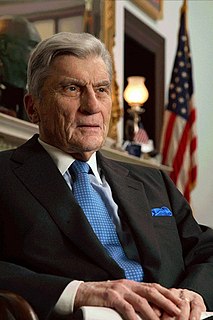A Quote by Francois de La Rochefoucauld
The praise we give to new comers into the world arises from the envy we bear to those who are established.
Related Quotes
Love rejoices in good wherever it finds it; envy is pained by good, and the sight of the happiness of others hurts the eyes and the heart of the envious man. Love wishes to give; envy would rather receive. Love creates; envy destroys. Love builds up; envy pulls down. Love helps those in need, comforts the afflicted, and strives to turn all that is evil into good; envy would turn the little happiness to be found in this world into evil, sorrow, and pain.
The soul grows into lovely habits as easily as into ugly ones, and the moment a life begins to blossom into beautiful words and deeds, that moment a new standard of conduct is established, and your eager neighbors look to you for a continuous manifestation of the good cheer, the sympathy, the ready wit, the comradeship, or the inspiration, you once showed yourself capable of. Bear figs for a season or two, and the world outside the orchard is very unwilling you should bear thistles.
Envy is the most universal passion. We only pride ourselves on the qualities we possess, or think we possess; but we envy the pretensions we have, and those which we have not, and do not even wish for. We envy the greatest qualities and every trifling advantage. We envy the most ridiculous appearance or affectation of superiority. We envy folly and conceit; nay, we go so far as to envy whatever confers distinction of notoriety, even vice and infamy.
It's good to have a brand that is consistent that people know about and trust. But it's also good to mix it up and adapt it, to polish it a bit and give it a new aspect. To not violate the reputation you've established but give it a new edge and veneer to show other aspects that people hadn't suspected.
I do not believe so many Turks suspect my activities. The idea that this movement of volunteers is suspected by many Turks arises in the same way and for the same reasons that the world hears more about those Muslims whom the media call radicals. Since those who give this impression are extremely loud, some observers can be deceived.
The maxim that men are not to be praised before their death was invented by envy and too lightly adopted by philosophers. I, on the contrary, maintain that they ought to be praised in their lifetime if they merit it; but jealousy and calumny, roused against their virtue or their talent, labour to degrade them if any one ventures to bear testimony to them. It is unjust criticism that they should fear to hazard, not sincere praise.



































